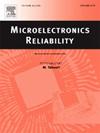On the validity of rainflow counting-based lifetime assessment for power electronics assembly
IF 1.6
4区 工程技术
Q3 ENGINEERING, ELECTRICAL & ELECTRONIC
引用次数: 0
Abstract
The lifetime assessment of power electronics based on mission profiles is increasingly applied to obtain realistic lifetime predictions while considering application-close operational scenarios. Generally, mission profile-based lifetime is calculated by individual temperature cycles disassembled from the mission profiles using specific counting methods. Among the different methods, rainflow counting (RC) method is the most common algorithmic procedure for determining damage-relevant events in power electronics. However, the conventional RC method does not consider the mechanical sequential effect and transient effect on damage caused by time-dependent material properties, especially at high temperatures during power module operation. In this paper, we investigate the validity of using the RC method for mission profile-based lifetime assessment of power modules. Through finite element (FE) modeling, we explicitly calculate both effects driven by the mission profile. For the selected mission profiles, we find that the lifetime of bond wire calculated by the FE approach shows a difference of 9 %, which cannot be sensed by the conventional RC approach. Furthermore, through a comparison between different approaches, it appears that the lifetime calculated by the RC approach is higher than the lifetime assessed by the FE approach by around 20 %. Simultaneously at the solder, the deviation between both approaches reaches around 95 %.
基于雨流计数的电力电子组件寿命评估有效性研究
基于任务剖面的电力电子寿命评估越来越多地应用于在考虑应用接近操作场景的情况下获得真实的寿命预测。通常,基于任务剖面的寿命是通过使用特定的计数方法从任务剖面中拆卸单个温度循环来计算的。在各种方法中,雨流计数法(RC)是电力电子系统中最常用的确定损伤相关事件的算法程序。然而,传统的RC方法没有考虑随时间变化的材料性能对损伤的力学顺序效应和瞬态效应,特别是在功率模块工作时的高温下。在本文中,我们研究了使用RC方法进行基于任务剖面的电源模块寿命评估的有效性。通过有限元(FE)建模,明确计算了由任务剖面驱动的两种效应。对于选定的任务剖面,我们发现用有限元方法计算的键合线寿命有9%的差异,这是传统RC方法无法感知的。此外,通过不同方法之间的比较,RC方法计算的寿命似乎比有限元方法评估的寿命高约20%。同时在焊点处,两种方法之间的偏差达到95%左右。
本文章由计算机程序翻译,如有差异,请以英文原文为准。
求助全文
约1分钟内获得全文
求助全文
来源期刊

Microelectronics Reliability
工程技术-工程:电子与电气
CiteScore
3.30
自引率
12.50%
发文量
342
审稿时长
68 days
期刊介绍:
Microelectronics Reliability, is dedicated to disseminating the latest research results and related information on the reliability of microelectronic devices, circuits and systems, from materials, process and manufacturing, to design, testing and operation. The coverage of the journal includes the following topics: measurement, understanding and analysis; evaluation and prediction; modelling and simulation; methodologies and mitigation. Papers which combine reliability with other important areas of microelectronics engineering, such as design, fabrication, integration, testing, and field operation will also be welcome, and practical papers reporting case studies in the field and specific application domains are particularly encouraged.
Most accepted papers will be published as Research Papers, describing significant advances and completed work. Papers reviewing important developing topics of general interest may be accepted for publication as Review Papers. Urgent communications of a more preliminary nature and short reports on completed practical work of current interest may be considered for publication as Research Notes. All contributions are subject to peer review by leading experts in the field.
 求助内容:
求助内容: 应助结果提醒方式:
应助结果提醒方式:


